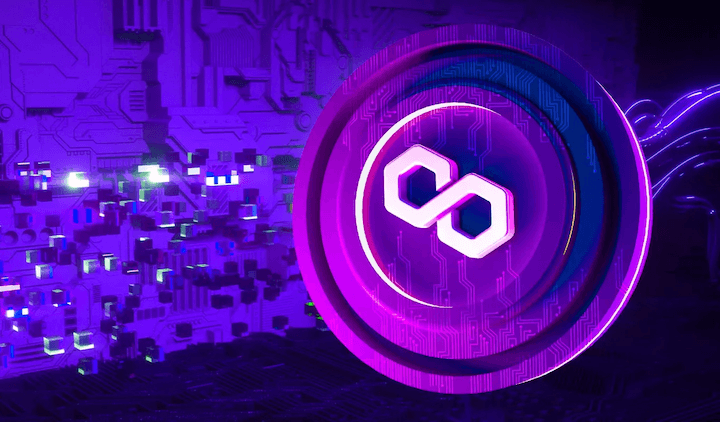
In a groundbreaking move, the Bank of Italy’s innovation hub has taken a significant step towards embracing decentralized finance (DeFi) by partnering with Ethereum scaling network developer Polygon Labs and crypto infrastructure provider Fireblocks. This bold initiative aims to pave the way for financial institutions to explore the world of DeFi and tokenized assets, all while central banks globally intensify their efforts in developing central bank digital currencies (CBDCs) and integrating blockchain technology into the existing payment systems.
As tokenization gains traction in crypto, traditional financial institutions and digital asset firms increasingly seek to place conventional instruments, such as bonds and equities, onto the blockchain. This groundbreaking partnership is set to reshape the financial landscape but raises questions and challenges that warrant examination.
Table of Contents,
- 1 The Rise of DeFi: Transforming Finance as We Know It
- 2 Opening the Doors for Financial Institutions to Dabble with DeFi
- 3 Central Bank Digital Currencies (CBDCs) and Blockchain Adoption
- 4 The Tokenization Trend: Bridging Traditional Finance and the Crypto World
- 5 The Challenges Ahead: Striking a Balance between Innovation and Regulation
- 6 Conclusion
The Rise of DeFi: Transforming Finance as We Know It
DeFi has emerged as a revolutionary force in the financial sector, offering decentralized solutions that redefine traditional banking models. By leveraging blockchain technology, DeFi platforms provide a secure, transparent, and permissionless environment for various financial activities, including lending, borrowing, trading, and yield farming.
The partnership between the Bank of Italy’s innovation hub and Polygon Labs, along with Fireblocks, underscores the growing recognition among established financial institutions that DeFi holds significant promise for reshaping the future of finance.
Opening the Doors for Financial Institutions to Dabble with DeFi
The Bank of Italy’s innovation hub’s strategic decision to collaborate with Polygon Labs and Fireblocks sends a powerful signal to the financial industry. By delving into the DeFi space, traditional financial institutions can harness its potential benefits while mitigating risks.

The involvement of Polygon Labs as an Ethereum scaling network developer and Fireblocks as a crypto infrastructure provider ensures a robust and secure environment for experimentation with DeFi and tokenized assets. As financial institutions dabble with DeFi, they can gain insights into the underlying technologies, discover innovative use cases, and potentially unlock new revenue streams.
Central Bank Digital Currencies (CBDCs) and Blockchain Adoption
While DeFi provides decentralized financial services, central banks worldwide are racing to develop their own CBDCs to enhance the existing payment systems’ efficiency, security, and inclusivity. By incorporating blockchain technology, CBDCs aim to streamline cross-border transactions and reduce settlement times significantly.
The partnership between the Bank of Italy’s innovation hub and the DeFi project acknowledges the potential synergy between these parallel developments. It allows for exploring ways to integrate DeFi concepts with CBDCs, fostering a more comprehensive understanding of how these technologies can complement each other in reshaping the future of finance.
The Tokenization Trend: Bridging Traditional Finance and the Crypto World
Tokenization has emerged as one of the most prominent trends in cryptocurrency, providing the means to represent real-world assets as digital tokens on the blockchain. This revolutionary process enables financial instruments, such as bonds and equities, to be transferred, traded, and settled efficiently and transparently. Traditional financial institutions and digital asset firms join forces to tokenize old-school instruments, unlocking previously untapped liquidity and accessibility.
The Challenges Ahead: Striking a Balance between Innovation and Regulation
As the Bank of Italy’s innovation hub spearheads this transformative initiative, it must successfully address various challenges to integrate DeFi and tokenized assets into the financial ecosystem. Striking an optimal balance between fostering innovation and implementing adequate regulatory frameworks is paramount to protecting consumers, preventing illicit activities, and maintaining financial stability. Moreover, as DeFi projects are not immune to vulnerabilities and security breaches, ensuring robust security measures and auditing processes becomes critical for maintaining trust and confidence in the system.
Conclusion
The Bank of Italy’s innovation hub’s bold move to embrace a DeFi project involving Polygon Labs and Fireblocks signifies a monumental step towards reshaping the financial industry. Traditional financial institutions can unlock new possibilities by exploring the potential of DeFi and tokenized assets.
At the same time, central banks worldwide work on developing CBDCs and integrating blockchain technology into existing payment systems. However, the journey ahead is not without its challenges. Striking a balance between innovation and regulation, bolstering security measures, and fostering collaboration between traditional finance and the crypto world will be essential in realizing the full potential of this transformative partnership. With proactive and diligent efforts, the Bank of Italy’s innovation hub can lead the charge in shaping a more inclusive, efficient, and decentralized financial future for all.
Earlier, we reported that the US Senate proposes to control DeFi as regular banks.



